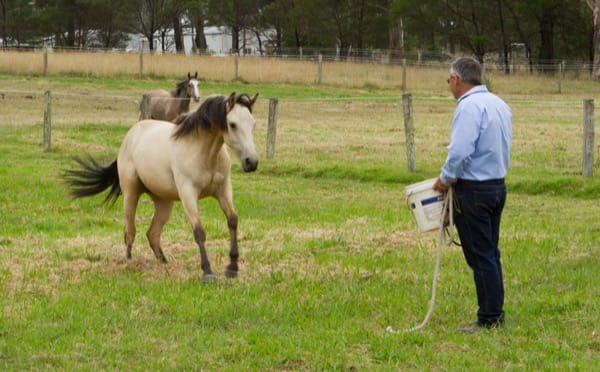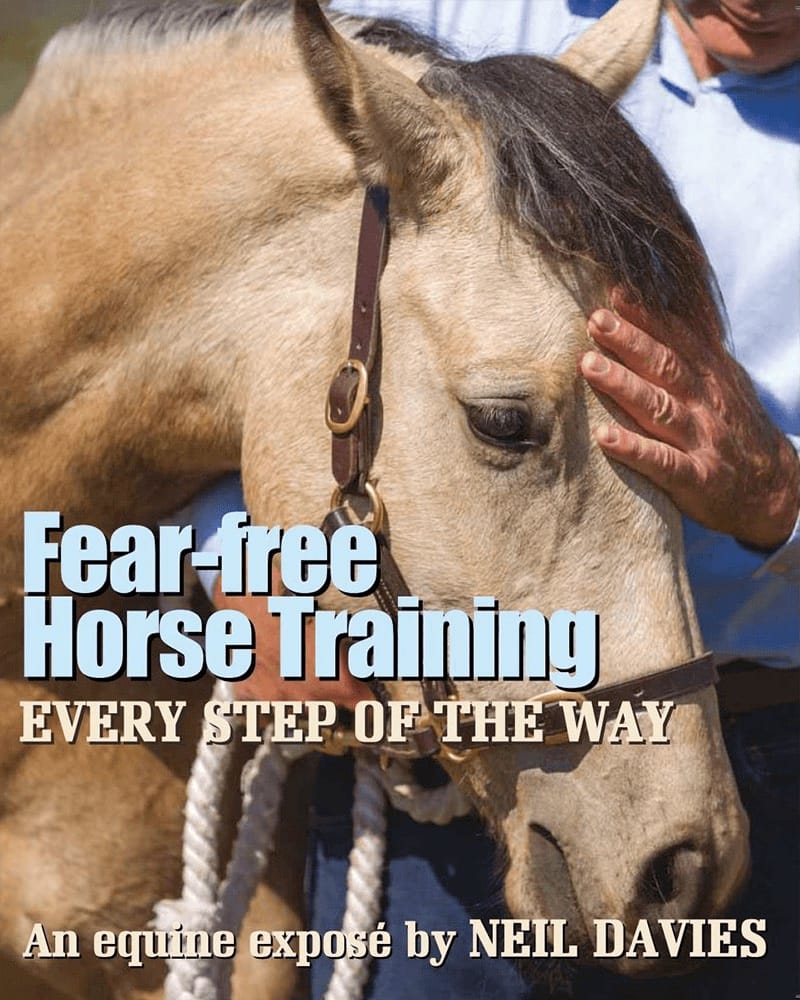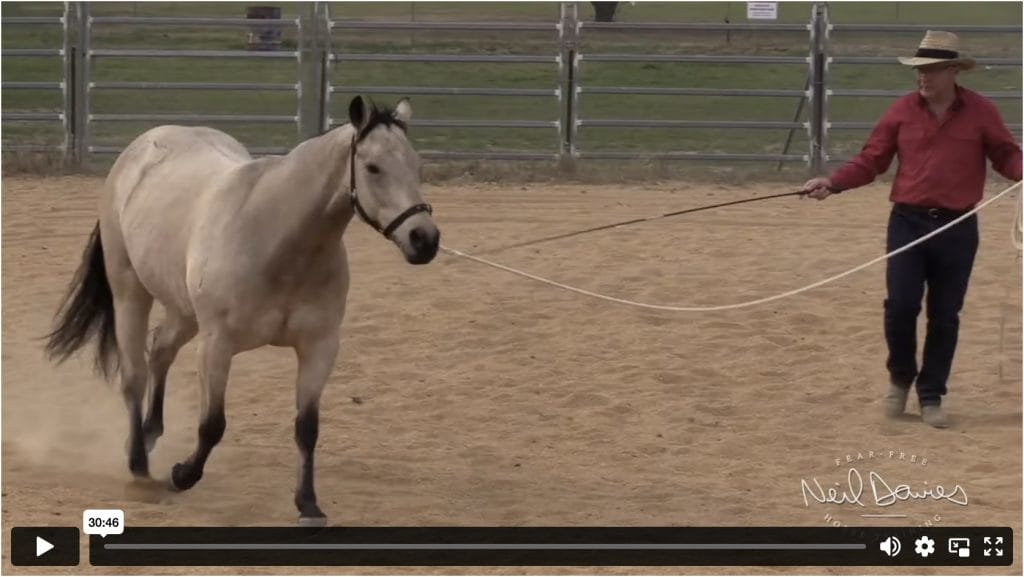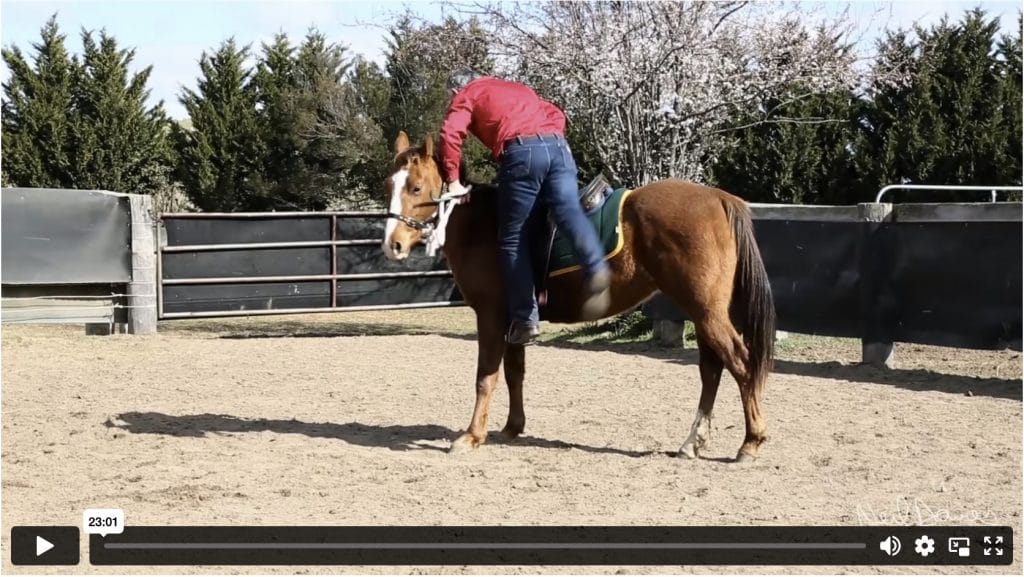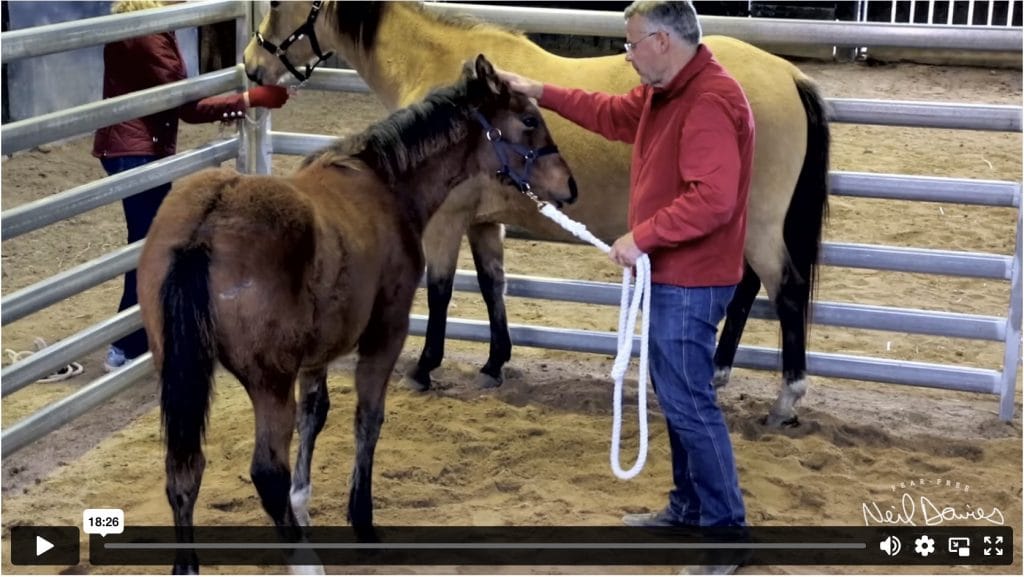In every group of horses, there’s always some form of pecking order.
When you feed a mob of horses in the paddock, there’s always one horse who will chase the others away so he can eat more.
If you take this boss horse away, another will take his place.
In the wild, a stallion keeps his mares together and chases off any interlopers.
An older mare is usually the leader and bosses the other mares.
When she heads off for a drink, others follow.
Though it’s true that these things happen in horse herds, they have nothing to do with horse training.
Some trainers would have you believe that the reason your horse doesn’t respond correctly is because he thinks he’s higher in the pecking order and he doesn’t respect you.
The biggest problem with this theory is that it assumes your horse knows what you want him to do.
It assumes your horse knows when you want him to trot a circle, or canter off, or change leads, or perform a roll back or whatever.
Horses don’t automatically know what you want at any stage of their training.
Everything must be taught one step at a time.
My book was written to show how to teach every horse one step at a time.
The reality is that a young horse has no idea what you’re doing on his back when he’s first ridden.
He doesn’t know to take even one step.
He must be taught.
Every horse must be taught to walk forward in a circle.
Every horse must be taught to trot and to canter.
Every movement must be taught to every horse.
If your horse is frightened or confused, he may react by using undesirable behaviours such as rearing, kicking-up or bucking.
These behaviours are the result of inconsistent handling or riding and of pushing horses too far, too quickly.
They have nothing to do with leadership, respect or pecking orders.
The big problem with thinking that your horse doesn’t respect you, is that you may use too much pressure and force when your horse is frightened or confused.
Whenever you see a horse sweating and puffing and distressed, you can be sure that the horse doesn’t understand.
You can be sure that the trainer has pushed too hard when he should have come back a step and shown the horse what he wanted.
And finally, your horse knows that you’re a human.
He doesn’t think you’re part of his herd.
Leadership, respect, pecking orders, domination and submission have nothing to do with horse training.

